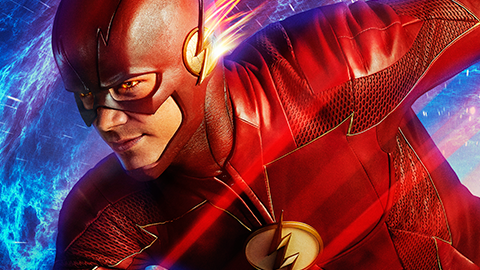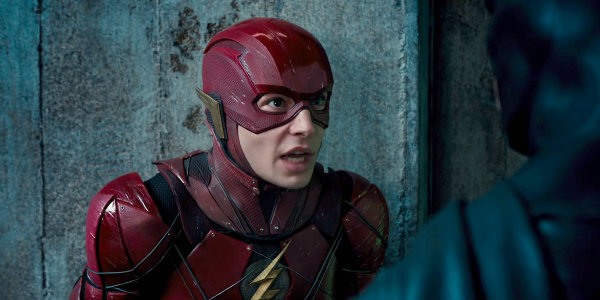When producers of the planned big-screen “Justice League” movie announced the film would be hiring Ezra Miller to play The Flash rather than actor Grant Gustin, who plays the character on the popular CW series “The Flash,” many fans wondered how the Flashes would stack up against each other.
Grant Gustin has been playing the character of Barry Allen on television weekly for almost four years and is the version of the character many people are now used to. However, Ezra Miller’s Flash in the new film feels like a completely fresh take on an established character. Many people have tried to compare the big-screen DC Extended Universe to the CW’s DC Comics TV shows, but The Flash who is at the center of the CW universe is special as he is the only one who is a main character in both universes. So, the question on many viewers’ minds is: How does Ezra Miller’s Flash compare to Grant Gustin’s?
One major difference between the two Flashes is that the small-screen version of the hero is more accurate to the comic book source material. The movie version, while still similar, is different as he gets his powers at a younger age and before he gets his job. In the TV show and in the comics, The Flash has a job as a forensic scientist, and this is a key part of how he solves crimes. In the movie, he seems to be in early 20s and works multiple jobs trying to get his father out of prison. His complicated relationship with his dad remains the same in the movie as it is in the TV show.
Since Miller’s Flash is a younger version of the character, it has a similar feel to the way Gustin played the role in season one of the CW’s “Flash.” Movie Flash is younger and lacks the confidence of his superhero counterparts, including Batman, Wonder Woman and Aquaman. However, it’s that self doubt and awkwardness that brings his comedic element to the film.
Due to his younger age and difficulty connecting with people, Miller’s Flash often has comedic interactions with the other members of DC’s super team. His age and relationship to Batman in the film really make him feel like more of a Robin-type sidekick; whereas, Gustin’s version of The Flash is mostly independent in the later seasons but still seeks guidance. Miller’s version also reminded me of Tom Holland’s portrayal of a high school Peter Parker in last summer’s “Spider-Man: Homecoming.”

One major difference between the two Flashes? In the CW show, Barry Allen is supported by his friends who help him at Star Labs, but in the movie Barry is The Flash solo. In “Justice League,” the character has problems connecting with others and making friends, which is likely why he works alone.
The film’s Flash HQ differs greatly from that of CW’s Star Labs, where high tech gadgets support Barry’s work. In the movie, Barry only has himself and some computers to monitor crime and fight. This touch was strange at first, but I later realized one of the things all the characters in the movie have in common is that they’re all somewhat loners and have lost people close to them. Barry’s isolation may not be what many Flash fans are used to, but it is still a novel concept I’d like to see play out further when Miller next plays the character on the big screen.
Overall, Miller’s portrayal of The Flash is good. I still prefer Gustin’s take on the character, but Miller’s version is fun to see on screen with the other characters. He brings a more light-hearted tone that the DC movies definitely need, and he does well in the role. Ultimately, Miller’s Flash feels somewhat inspired by Gustin’s TV work, as he still has many of the same characteristics, especially in scenes with his dad. But for fans of the comic book and TV series, Miller’s Flash is all around great, and hopefully when other fans see this film, they’ll think so, too.
 Chris, 15, attends DeKalb School of the Arts and is a self-described comic book guru.
Chris, 15, attends DeKalb School of the Arts and is a self-described comic book guru.




